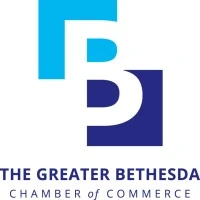Difference-Between-Financial-Controller-CFO.

In a business setting, the chief financial officer (CFO) and controller often collaborate closely, yet their roles are distinctly different.
This article will delve into the roles and responsibilities of both CFOs and controllers, providing insights to help you identify which financial management positions are essential for your company. Understanding these roles will ensure that your company benefits from both efficient back-office operations and robust strategic financial planning.
Key Takeaways
CFO and Controller: Understanding the Distinctions
The key distinctions between a controller and a CFO lie in their unique roles, responsibilities, and their positions within the organizational hierarchy of a business.
Hierarchy within the Organization
A CFO and a controller occupy distinct levels within a company’s organizational hierarchy, as depicted on its org chart.
The CFO holds an executive position, collaborating with other c-suite members such as the CEO and COO.
Conversely, a controller serves as a middle manager and heads the accounting or finance department.
While the controller primarily oversees day-to-day bookkeeping and financial operations, the CFO is responsible for the broader management of the company’s finances.
Scope, Objectives, and Aims of the Role
In addition to existing at different management levels, the roles of a CFO and a controller have significantly different purposes, scopes, and objectives.
Both roles must align within the company, aiming for the same overarching goals, but they fulfill distinct functions and serve different needs essential for achieving these unified objectives.
The CFO’s role is predominantly forward-looking. They leverage their financial expertise to forecast future trends, strategize for growth, and provide guidance to stakeholders. A CFO is expected to identify financial risks and develop strategies to mitigate them. Their leadership is crucial in steering the company in the right direction, interpreting the broader implications of financial data, and aiding the CEO in making informed decisions.
On the other hand, the controller’s role is more operational. They are tasked with developing, implementing, and managing the processes that gather, process, and report financial data. A controller’s diligent management ensures that the back office functions effectively, adhering to regulatory standards, safeguarding against fraud, and enhancing the accuracy and timeliness of financial reporting. Without a controller’s foundational work, a CFO cannot perform effectively.
Additionally, have you considered the actual cost of maintaining an in-house accounting department? An internal team might be more expensive and less efficient than you realize.
Day-to-Day Duties
Difference-Between-Financial-Controller-CFO: Given the significant differences in the scope of the controller and CFO roles within a company, their daily responsibilities also diverge considerably.
The daily duties of a CFO concentrate on overseeing the broader perspective, forecasting future trends, and making strategic choices to guide the company’s direction. Key responsibilities include:
Strategic Financial Planning and Forecasting
Difference-Between-Financial-Controller-CFO: Assessing the company’s historical and current financial statements
Financial projections
Identifying operational efficiencies and inefficiencies to enhance performance and profitability
Predicting potential future scenarios (optimal, average, and least favorable) and devising strategic responses for each scenario
Financial Oversight
Difference-Between-Financial-Controller-CFO: Recommending strategies for profit reinvestment
Evaluating the company’s debt and equity to manage the capital structure
Addressing issues within the capital structure
The daily tasks of a controller are centered around developing, implementing, and managing the policies, procedures, technologies, and tools that form the backbone of the company’s accounting and bookkeeping systems. Their responsibilities include:
Administration
Overseeing the operations and staff of the accounting department
Ensuring robust bookkeeping and accounting policies, procedures, and practices
Oversight of Transactions
Difference-Between-Financial-Controller-CFO
Implementing and updating automated record-keeping systems
Managing accounts receivable and payable
Supervising payroll operations
Ensuring accuracy through checks and balances in account reconciliations
Maintaining the chart of accounts
Preparation of Reports
Conducting regular month-end closings
Producing timely and accurate financial reports
Developing an annual budget and annual report
Identifying and reporting on budget variances
Monitoring key performance indicators
Discovering opportunities to enhance business performance and delivering financial analyses to support management decisions
Compliance with Regulations
Maintaining readiness for audits and tax obligations
Collaborating with external auditors
Coordinating with CPAs for tax preparation and filing
Is It Possible for a Company to Employ Both a CFO and a Controller?
Absolutely! Most successful and larger businesses employ both a CFO and a controller.
However, the challenge arises with many small and medium-sized businesses that may struggle to afford the costs associated with hiring qualified individuals for these high-paying roles. Without adequate oversight of financial operations and strategic financial planning, a business can face significant issues. These may include cash flow problems, financial waste, operational inefficiencies, data inaccuracies, reporting errors, unclear strategic direction, and other challenges that can introduce unnecessary obstacles.
So, what are the options for small and medium-sized businesses to ensure comprehensive financial management?
How Can Outsourced Controller Services Meet Your Business Needs?
Difference-Between-Financial-Controller-CFO: Outsourcing controller services, either partially or fully, presents an ideal solution for small and medium-sized businesses (SMBs) that need a capable back office but are unable to afford the expense of high-level in-house positions.
By choosing outsourced controller and accounting services, SMBs gain access to the expertise and knowledge of seasoned financial professionals without the burden of paying full-time salaries and benefits.
This approach allows business owners to benefit from a comprehensive, high-functioning back office, paying only for the specific services, time, and personnel they actually require. Additionally, as the business expands, the scope of outsourced accounting services can adapt and grow accordingly.
This scalable and economical solution is particularly well-suited for SMB owners seeking to optimize their back office operations, enabling the business to efficiently support its growth rather than constantly struggling to keep up.
As a certified CFO, I bring a robust blend of expertise and accreditation to the table, ensuring that my strategic financial management not only aligns with industry best practices but also drives substantial value and innovation in the services sector. My certification is a testament to my commitment to excellence and my capability to navigate complex financial landscapes effectively, making me a trusted advisor in your journey towards greater profitability and business success.




